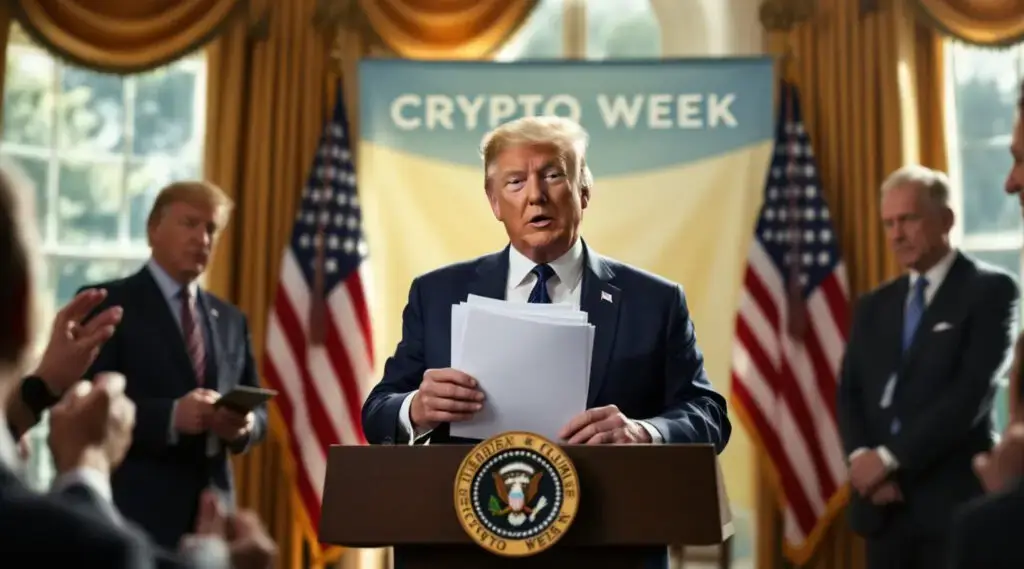WASHINGTON – What House Republicans had dubbed “crypto week” has hit significant roadblocks, with a trio of key cryptocurrency bills stalling on Tuesday due to an unexpected alliance of Republicans and Democrats. This procedural setback has not only brought the legislative effort to a standstill but also dealt a blow to President Donald Trump’s ambitious agenda to establish the U.S. as the “crypto capital of the world.”
The Stalled Legislation and Internal Disagreements
The package of bills includes the Senate-passed “Guiding and Establishing National Innovation for U.S. Stablecoins Act of 2025,” or “GENIUS Act,” which aims to regulate stablecoins. Additionally, there are broader measures addressing cryptocurrency market structure, such as the “Digital Asset Market Clarity Act” (CLARITY Act), and a bill to prohibit the Federal Reserve from issuing a central bank digital currency (CBDC).
The primary reason for the delay stems from a disagreement over how these three bills should be passed. A group of 13 Republicans joined all Democrats in opposing a procedural vote required to bring the bills to the floor. Some Republicans insist that all three bills should be combined into a single package, fearing that the Senate might not advance the market structure or CBDC ban legislation if passed individually. However, packaging them would necessitate sending the combined bill back to the Senate, potentially delaying passage. President Trump and Republican leaders prefer individual votes to expedite the stablecoin legislation to the President’s desk before the August recess.
Trump’s Intervention and Ongoing Negotiations
President Trump intervened in a late-evening meeting with Republicans at the White House, seemingly getting the bills back on track. He expressed optimism on social media, stating that he had secured the support of 11 of the 12 holdout lawmakers for the procedural vote on the “GENIUS Act” and expected votes as early as Wednesday. House Speaker Mike Johnson acknowledged the “legislative process” was underway and indicated that discussions were ongoing with the Senate and White House.
However, just hours after Johnson’s comments, House leadership cancelled votes for the remainder of the day, leaving the crypto bills in limbo. Despite Trump’s intervention and subsequent social media posts, the situation remains fluid, highlighting the deep divisions within the Republican caucus on this issue.
Implications and Industry Reactions
The stalled legislation has significant implications for the cryptocurrency industry, which has invested heavily in the 2024 election to elect crypto-friendly lawmakers. The industry is eager for clearer regulations to foster legitimacy and consumer trust. Faryar Shirzad, chief policy officer of Coinbase, the largest cryptocurrency exchange in the U.S., remarked on social media that “every few steps forward there’s inevitably a step back,” emphasising the need for clarity on who genuinely supports pro-crypto legislation.
Adding another layer to the debate is President Trump’s personal financial interest in stablecoins. His family holds a substantial stake in World Liberty Financial, a crypto project that recently launched its own stablecoin, USD1. While the Senate-passed stablecoin legislation includes a provision barring members of Congress and their families from profiting from stablecoins, this prohibition notably excludes the president and his family, raising questions as Trump reportedly builds a “crypto empire” from the White House.
The outcome of this legislative battle could also impact the 2026 midterm elections, with crypto-focused Super PACs like Fairshake already amassing significant funds to support candidates who champion pro-crypto policies.























